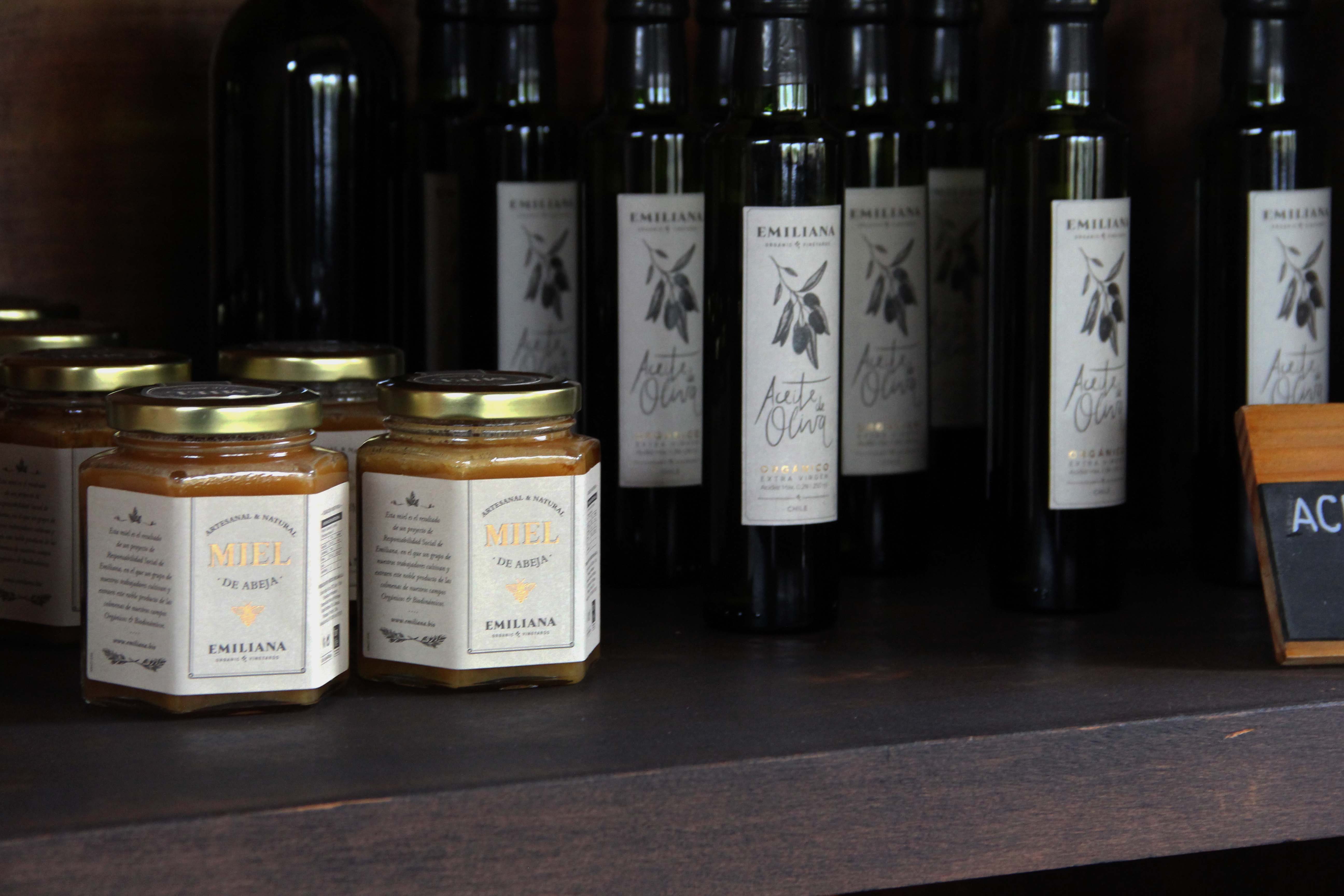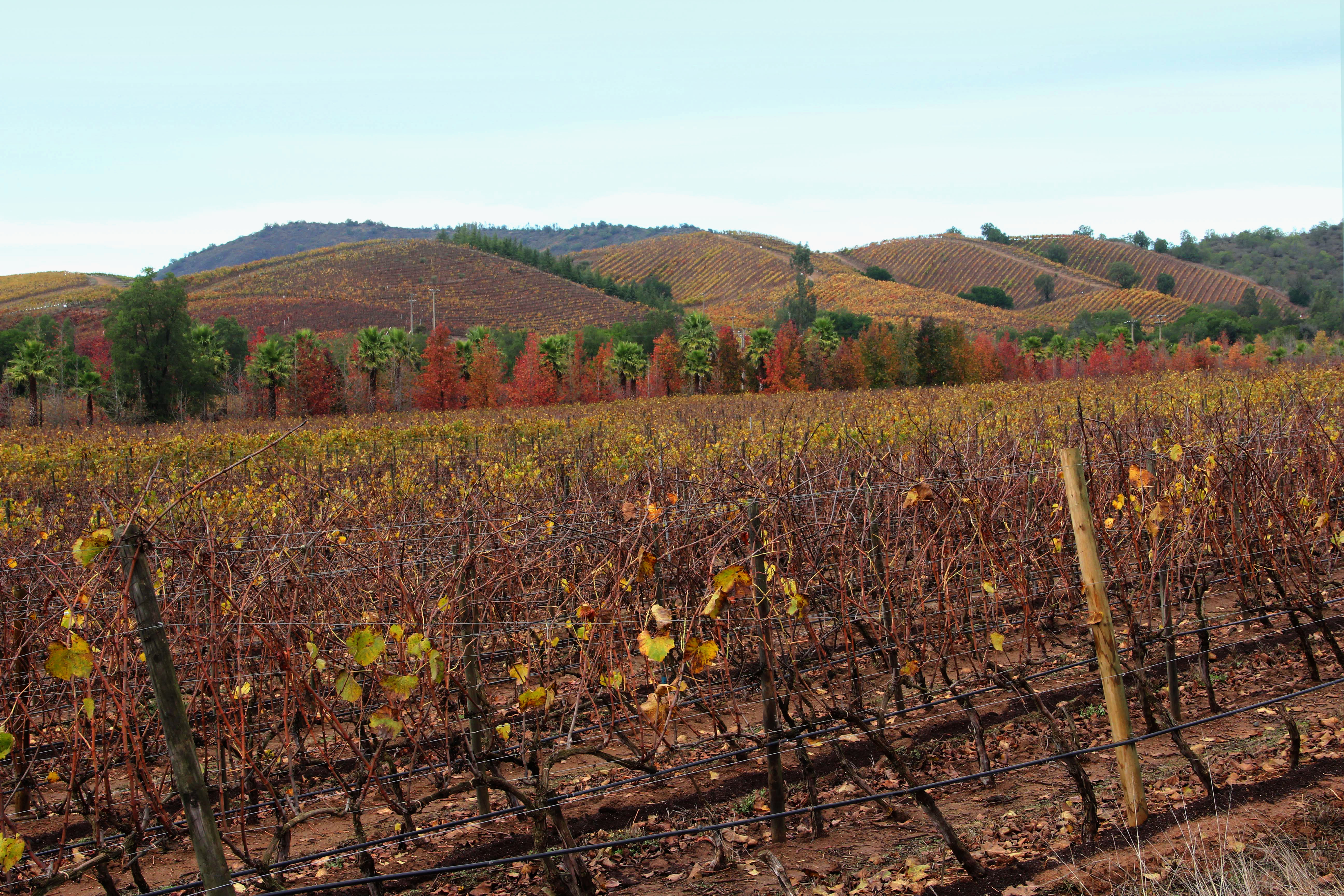
Casablanca, located in the middle of Chile, has a Mediterranean climate, with mild winters, warm summers, and cooling sea breezes. However, Casablanca does not have any rivers or lakes, and the water comes entirely from rainfall or water tables. Within the past couple of years, temperatures have increased, rainfall has decreased in the region, and the environment has become increasingly unpredictable. These changing conditions are impacting one of the most profitable industries in the area—viticulture. As a result of smaller harvests, the economy of the entire local community suffers
Yet there vineyards in Chile where more sustainable and organic farming techniques are being developed—and one of these, Emiliana Vineyards, has put into place a new socially responsible program.
Vineyards are known for their high usage of water to keep the grape vines healthy. Water stress is a big concern for areas that receive less rainfall and have increased temperatures. The lack of rivers and lakes further exacerbates the problem as there are no above-ground water reservoirs that can be used for the agriculture industry. With the diminished precipitation, crops in Casablanca require an increase in irrigation to promote a healthy harvest.
"Viticulture is relatively new to Casablanca and many vineyards have young grape vines, Benjamin Culver, a guide at Kingston Family Vineyards, explained. "While older grape vines are more durable, these young crops are extremely sensitive to climatic changes."
Some vineyards have decided to grow their crops organically to create a more sustainable environment in response to the volatile climate. The reliance on natural processes keeps the vineyard healthy without polluting the surrounding lands with harmful herbicides.
"Rodrigo Soto, who gained experience working with other organic vineyards before working at Veramonte Vineyards, noticed that implementing organic techniques doubled the lifetime of vineyards by making them more sustainable," said Andres Torres, host at Veramonte Vineyards.
Other vineyards apply the idea of biodynamic farming to the wine production. According to Wilson Quintanilla, guide at Emiliana Vineyards, "The focus of biodynamic vineyards shifts to the overall health of the Earth and the continual cycle of harvesting and replenishing the energy of the Earth."
Although these changes improve the sustainability of the vineyards and the health of the native environment, inconsistent weather conditions still upset the wine industry. As seen in 2014, adverse environmental conditions such as drought and frost affected the entire country. Wine production in all regions decreased due to the loss of healthy vines. According to the "Wine Annual Chilean Wine Production 2015," the yield dropped over 24 percent when compared with production rates of Chilean wine in 2013. The lower production rates did not simply affect vineyards' fiscal year; many of the seasonal workers were not rehired.
Culver at Kingston Family Vineyards acknowledges that a smaller harvest means there is less work available and, as most vineyards hire field employees on a seasonal basis, fewer workers were needed to gather the grapes and produce the wines. This loss also translates to the local community—a higher unemployment rate negatively affects all types of businesses.
To prevent this situation from happening every year that there is a low production, Emiliana Vineyards created a Social Responsibility Program that protects the employees.
The program consists of five initiatives to help and educate the local community: (1) community plantings that are dedicated spaces to teach organic farming techniques to employees while also providing fresh food for them and their families; (2) recreational facilities for the local community; (3) scholarships for workers to improve their skills through learning from vocational education institutes; (4) a micro-enterprise program involving a space on the vineyard set aside to produce honey, olive oil, wool, and hats that are sold to the public, with proceeds from the sales going to the employees; (5) and the allotment of land for a housing program run by the government.
In implementing this program, Emiliana Vineyards not only gives back to its workers, but also helps the local community—providing a healthier environment and an opportunity for higher education and professional development.
"The Social Responsibility Program and the transition to become an organic vineyard was started for concern for the workers," said Sebastián Tramon, who works as a part of the social responsibility team. "José Guilisasti, one of the owners of Emiliana Vineyards at the time, became aware of agrochemicals that negatively affect the health of the workers. Due to this knowledge Emiliana Vineyards started the conversion process to become an organic vineyard in 1998. At the same time, the workers had many other needs that were not being met. The social responsibility team came up with programs to fulfill these needs. Overall, the motivation for Emiliana Vineyards' Social Responsibility Program was concern for the workers. This preoccupation also sparked the change to a fully organic vineyard, which completely transformed the company."
Emiliana Vineyards not only gives back to its workers, but also helps the local community—providing a healthier environment and an opportunity for higher education and professional development.
(Editor's note: This story was modified on July 6, 2017, to correct the names of those associated with the Social Responsibility Program.)







